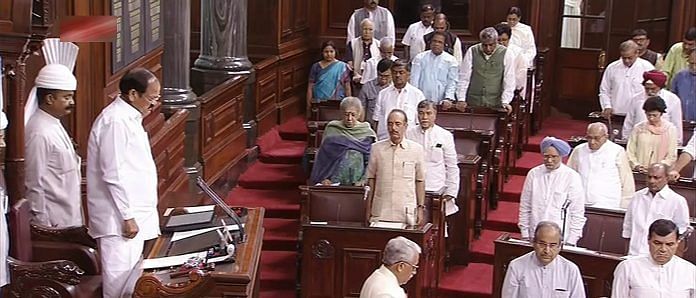Critics say the proposed amendments will only end up helping the corrupt rather than punishing them.
New Delhi: The Prevention of Corruption (Amendment) Bill, 2013 — one of the long-pending legislations — was passed by a voice vote in the Rajya Sabha Thursday.
The bill, which had been repeatedly listed for discussion in Parliament for the past five years, will now be debated in the Lok Sabha.
Critics say the proposed amendments will only end up helping the corrupt rather than punishing them.
Bribe giver can be held guilty
One major change proposed initially is penalising the bribe giver and bribe taker on equal terms. The existing law — the Prevention of Corruption Act, 1988 — penalises only public officials who take a bribe.
After recommendations from experts, an exception was made to the proposed amendment — under this, people who are compelled to pay bribe will have the option of reporting the incident to the law enforcement authorities within seven days to avoid being punished.
Prior approval for probing a public servant
Another change proposed relates to the prior approval required not just for prosecuting but also for investigating a public servant. The existing law already has in place checks to ensure the investigating agencies seek approval before the public servant can be prosecuted.
The bill proposes to insert a new Section 17A that would bar investigating agencies from even beginning a probe or investigating the offences under this Act without prior approval. The amendment proposed by the government said this sanction was to be obtained from a Lokayukta or Lokpal.
‘Known sources of income’
Another contentious definition is the “known sources of income” in the bill. Earlier, the known sources of income for a public servant (MP/MLA) included those which had been declared or filed in an affidavit by him/her. Now, the bill proposes the public servant can give additional sources even after the declaration.
Opposition’s stance
During a discussion on the bill in the Rajya Sabha, Congress’ deputy leader Anand Sharma sought to know why the Narendra Modi government had not yet appointed the anti-graft ombudsman Lokpal.
Referring to the provisions of the bill, Sharma said the issue when a citizen is coerced to pay bribe needs to be looked into more.
Sharma said the opposition had been asking questions to which the ruling side often did not give a satisfactory reply.



